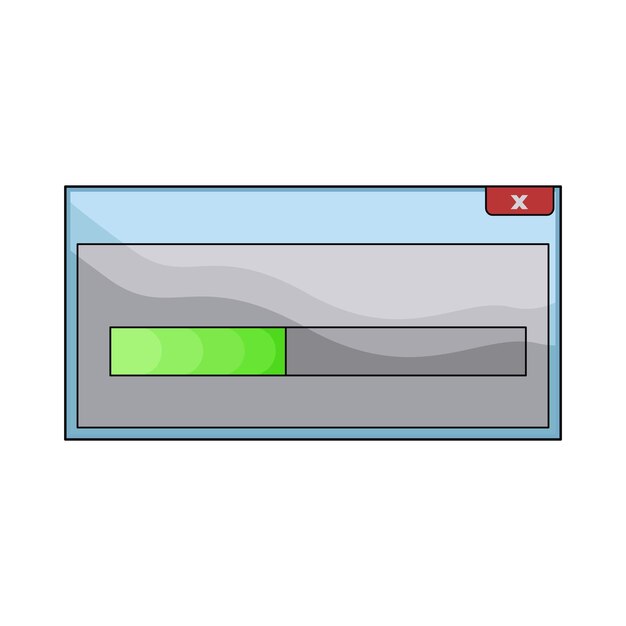PC Gaming Security: Protect Your Account in 2025

PC Gaming Security: Protecting Your Account from Hackers and Scammers in 2025 requires a proactive approach, including strong passwords, two-factor authentication, keeping software updated, and being wary of phishing attempts and suspicious links to safeguard your gaming accounts and personal information.
As the world of PC gaming continues to evolve, so do the threats against it. Ensuring PC Gaming Security: Protecting Your Account from Hackers and Scammers in 2025 is more critical than ever. Let’s dive into how to keep your gaming life safe.
Understanding the Evolving Threat Landscape
In the ever-evolving digital world, understanding the threats is the first step toward protecting your PC gaming account. The tactics used by hackers and scammers are becoming increasingly sophisticated, making vigilance crucial.
Common Threats Targeting PC Gamers
PC gamers face a variety of threats, ranging from simple phishing scams to complex malware. Being aware of these threats can help you avoid them.
- Phishing scams: These involve deceptive emails or messages designed to trick you into revealing sensitive information.
- Malware and viruses: Malicious software can steal your account credentials or damage your system.
- Keyloggers: These record your keystrokes, capturing your passwords and other personal information.
- Account takeovers: Hackers gain access to your account and use it for their own purposes, such as selling in-game items or spreading spam.

Why PC Gaming Accounts Are Targeted
PC gaming accounts are attractive targets for several reasons. Many accounts contain valuable in-game items, currency, or even linked payment information. Additionally, compromised accounts can be used to spread malware or conduct other malicious activities.
Understanding these threats and motivations will set the stage for implementing robust security measures, ensuring a safer and more enjoyable gaming experience.
Strengthening Your Foundation: Password Management
One of the most fundamental aspects of PC Gaming Security: Protecting Your Account from Hackers and Scammers in 2025, is robust password management. A strong, unique password is your first line of defense against unauthorized access.
Creating Strong, Unique Passwords
A strong password is long, complex, and unique to each account. Here are some tips for creating passwords that are difficult to crack:
- Use a mix of uppercase and lowercase letters: This increases the complexity of your password.
- Include numbers and symbols: Adding these makes your password even harder to guess.
- Make it long: Aim for at least 12 characters. The longer the password, the better.
- Avoid personal information: Don’t use your name, birthday, or other easily guessable details.
The Importance of a Password Manager
Managing multiple strong passwords can be challenging. A password manager can help you generate and store unique passwords for all your accounts, making it easier to stay secure.
Password managers can also automatically fill in your login credentials, saving you time and reducing the risk of keyloggers capturing your information. Popular options include LastPass, 1Password, and Bitwarden.
Effective password management is a cornerstone of PC gaming security. By creating strong, unique passwords and using a password manager, you can significantly reduce your risk of account compromise.
Enabling Two-Factor Authentication (2FA)
Two-factor authentication (2FA) adds an extra layer of security to your PC Gaming Security: Protecting Your Account from Hackers and Scammers in 2025. It requires you to provide a second verification method in addition to your password when logging in.
How 2FA Works
2FA works by requiring you to provide two different types of verification. The first is something you know (your password), and the second is something you have (a code sent to your phone or generated by an authenticator app).
Even if a hacker manages to obtain your password, they will still need access to your second verification method to log in to your account. This significantly increases the security of your account.
Setting Up 2FA on Gaming Platforms
Most major gaming platforms offer 2FA. Here’s how to enable it on some popular platforms:
- Steam: Enable Steam Guard through the Steam mobile app.
- Epic Games Store: Turn on 2FA in your account settings, using either an authenticator app or email verification.
- Battle.net: Enable 2FA in your account settings to receive codes via SMS or the Battle.net Authenticator app.
- Origin: Set up login verification in your account settings, using either email or app-based verification.
Enabling 2FA is one of the most effective steps you can take to protect your PC gaming accounts. It provides a strong defense against unauthorized access, even if your password is compromised.
Staying Updated: Software and System Security
Keeping your software and system updated is crucial for PC Gaming Security: Protecting Your Account from Hackers and Scammers in 2025. Updates often include security patches that address known vulnerabilities, protecting you from exploits.
The Importance of Regular Updates
Software updates aren’t just about new features; they often include critical security fixes. Hackers frequently exploit known vulnerabilities in outdated software to gain access to systems and accounts.
Maintaining Your Operating System and Drivers
Ensure your operating system (Windows, macOS, or Linux) is always up to date. Enable automatic updates to ensure you receive the latest security patches as soon as they are released. Also, keep your graphics card and other hardware drivers updated to avoid compatibility issues and potential security vulnerabilities.

Regularly updating your software and system is a proactive step that can significantly enhance your PC gaming security. By staying current with the latest patches and updates, you can close potential entry points for hackers and protect your accounts.
Recognizing and Avoiding Phishing Scams
Phishing scams are a common tactic used by hackers to steal account credentials. Learning to recognize and avoid these scams is an essential part of PC Gaming Security: Protecting Your Account from Hackers and Scammers in 2025.
Identifying Phishing Attempts
Phishing scams typically involve emails, messages, or websites that mimic legitimate organizations or gaming platforms. They are designed to trick you into revealing your username, password, or other sensitive information.
Best Practices for Avoiding Phishing
- Be wary of unsolicited emails or messages: Especially those asking for your login credentials.
- Check the sender’s email address: Look for misspellings or unusual domain names.
- Never click on links in suspicious emails: Always navigate directly to the website by typing the address in your browser.
- Verify the website’s security: Look for the padlock icon in the address bar and ensure the URL starts with “https”.
Staying vigilant and following these best practices can help you avoid falling victim to phishing scams and protect your PC gaming accounts.
Securing Your Network and Devices
Securing your network and devices is another crucial aspect of PC Gaming Security: Protecting Your Account from Hackers and Scammers in 2025. A compromised network or device can expose your gaming accounts to various threats.
Using a Firewall and Antivirus Software
A firewall acts as a barrier between your computer and the internet, blocking unauthorized access. Ensure your firewall is enabled and properly configured. Antivirus software scans your computer for malware and viruses, protecting you from malicious software.
Securing Your Home Network
Your home network is another potential entry point for hackers. Secure your Wi-Fi network by using a strong password and enabling WPA3 encryption. Consider disabling WPS (Wi-Fi Protected Setup) as it can be vulnerable to attacks. Also, enable guest network access for visitors to keep your main network secure.
By securing your network and devices, you can create a safer environment for PC gaming and protect your accounts from unauthorized access.
Staying Informed and Proactive
PC Gaming Security: Protecting Your Account from Hackers and Scammers in 2025 requires staying informed about the latest threats and being proactive in your security measures. The threat landscape is constantly evolving, so it’s essential to stay up-to-date.
Following Security News and Alerts
Stay informed about the latest gaming security threats by following security news websites, blogs, and social media accounts. Gaming platforms and security companies often issue alerts about new scams and vulnerabilities. Being aware of these threats can help you take steps to protect yourself.
Regularly Reviewing Your Security Settings
Take the time to regularly review your security settings on your gaming accounts. Ensure that 2FA is enabled, your password is strong, and your linked accounts are secure. By regularly checking your settings, you can identify and address any potential vulnerabilities.
Staying informed and proactive is essential for maintaining a secure PC gaming environment. By following security news, reviewing your settings, and taking steps to protect yourself, you can stay one step ahead of the hackers.
| Key Point | Brief Description |
|---|---|
| 🔐 Strong Passwords | Use long, unique passwords with mixed characters. |
| 📱 Two-Factor Authentication | Enable 2FA on all gaming platforms for extra security. |
| 🛡️ Software Updates | Keep your OS, drivers, and antivirus software up to date. |
| 🎣 Avoid Phishing | Be cautious of suspicious emails and links. |
FAQ
▼
PC gaming security is crucial because gaming accounts often contain valuable in-game items, linked payment information, and personal data. Protecting these accounts prevents financial loss and identity theft.
▼
Two-factor authentication adds an extra layer of security by requiring a second verification method, such as a code from your phone, in addition to your password. This makes it harder for hackers to access your account.
▼
If you suspect your account has been hacked, immediately change your password, enable two-factor authentication, and contact the gaming platform’s support team to report the incident.
▼
Phishing scams often involve unsolicited emails or messages asking for your login credentials. Check the sender’s email address, look for misspellings, and never click on links in suspicious emails.
▼
Software updates often include critical security patches that address known vulnerabilities. Keeping your software up-to-date helps protect your system from exploits used by hackers.
Conclusion
In conclusion, ensuring PC Gaming Security: Protecting Your Account from Hackers and Scammers in 2025 requires a multifaceted approach, including strong passwords, two-factor authentication, regular software updates, and vigilance against phishing attempts. By implementing these measures, you can significantly reduce your risk and enjoy a safer gaming experience.





